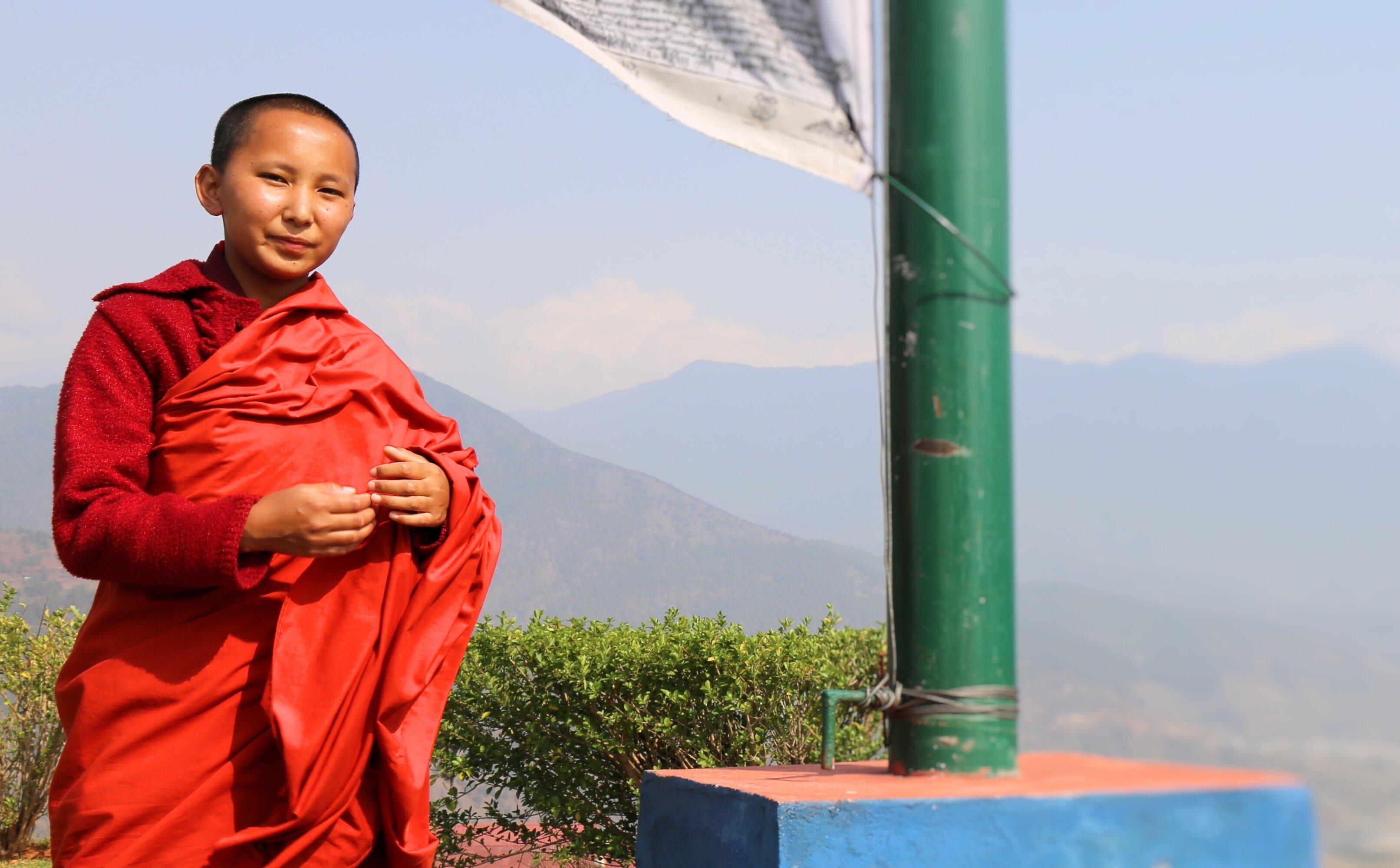Thimpu, Bhutan - In the tiny, landlocked Himalayan nation of Bhutan, religious figures are deeply revered, and monasteries play a vital role in education.
Many of the over 200 monasteries in the country are located in remote mountainous areas, allowing monks and nuns to educate thousands of young people who may otherwise never get the chance.
But with limited government support and most nunneries headed up by men, it’s often the nuns themselves that miss out on the knowledge they need to live healthy lives.
Tandim Lham, (22) is one of 150 nuns from across the country that received life skills based sexuality education training, including on women’s reproductive health and sexual violence, from the Bhutan Nuns Foundation and the United Nations Population Fund (UNFPA).
“I learned proper hygiene, how to care for my body during menstruation, and that we should not feel ashamed. These are natural things, and life skills education helps now and in the future,” she says.
With other nuns, Lham now shares her new found knowledge with women and girls from both inside and outside of her order. She also works to correct misconceptions surrounding sexuality.
“With these life skills we can help ourselves and others.”
Young people between 10 and 24 make up over 56 per cent of Bhutan’s population. For the country’s youth, knowing how to care for themselves is key to ensuring their health, rights and choices, and for the country to make the most of its young population.
Almost 45% of women between the ages of 15 and 49 reported getting pregnant between the ages of 11 and 19, and 13% of women believe that traditional healers and monks can treat pregnancy-related illnesses better than health workers.
“Through training given to nuns and through monasteries, thousands of young people are taught to stop risky, dangerous and damaging behaviour, improve their interpersonal relations and lead healthier sexual and reproductive lifestyles,” says Yeshey Dorji, UNFPA’s Assistant Representative in Bhutan.
“We’re looking forward to the day when every monk and every nun talks openly about health, sexuality, rights and lifestyle choices. With the huge respect and influence they wield, this will lead to healthier, happier and better informed individuals and communities across the entire country.”
UNFPA also works to engage men in promoting sexual and reproductive health and preventing sexual violence. With local NGO RENEW (Respect Nurture Educate and Empower Women) the team are now reaching out to monastic institutions across the country.
Looking to the future, Tandin Lham has high hopes for women, girls and young people in her country.
“Women in Bhutan are soft-hearted souls,” she says. “They can understand the people around them. So if you teach a woman in your house, then she’ll teach your whole family.”



